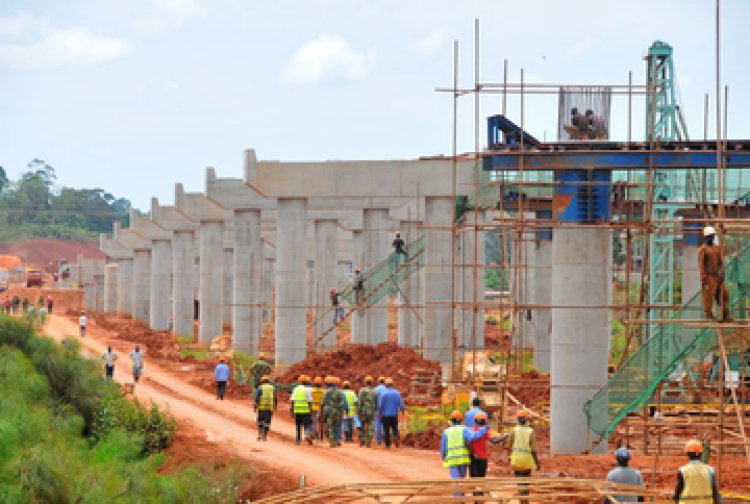Weak local content regulation, high cost of credit hindering local contractors to bid for infrastructure projects in Uganda: CoST study
CoST Uganda initiated the update of the Scoping Study conducted in 2017 to identify Uganda’s progress in addressing transparency and accountability in public infrastructure delivery processes.

The results of the updated Scoping Study on the baseline level of transparency on infrastructure transparency in Uganda where over 35 institutions from Government, private sector and civil society were engaged has indicated that a bigger percentage of local contractor continue to decry the lack of access to cheap funding sources, limited access to procurement plans, low threshold to local content provisions among other reasons why they don’t fully participate in procurement of infrastructure projects.
The scoping study according to the results that ran for a period of seven months was supported by the responsiveness and interest exhibited by the participating stakeholders despite challenges of COVID-19, elections and delays in data retrieval.
“80% of the stakeholders need increased access to procurement plans and clarity of bidding documents for the private sector. 65% of the stakeholders agreed that contractors are faced with lack of access to cheaper funding sources by local contractors and weak implementation of local content regulations” it partly reads.
The study conducted across central and local governments, CSOs, media, and development partners also shows that the private sector remained concerned about the low threshold for local content provisions and the need to revise the duration of a resident provider from 2 to 10 years.
The progress of implementation on the 2017 recommendations by government according to the study was at 69% whereas CSOs at 60% and development partners 50% among other findings.
The Permanent Secretary, Ministry of Works and Transport Bageya Waiswa, in his remark at the release of results of the scoping study held on 1st October 2021, highlighted the importance of maintaining a high level of quality infrastructure given the heavy investment involved in the sub-sector.
“My Ministry is responsible for the Integrated Transport Infrastructure and Services program, which continues to receive the lion’s share of the national budget. It is therefore important that with that level of public investment, high quality infrastructure is developed and maintained” he said
He urged all procuring entities to implement the recommendations of the CoST Uganda scoping study to ensure transparency, efficiency and value for tax payers money.
“I invite you all to take keen interest in the recommendations, and views from this engagement that will promote transparency, efficiency and value for money. I encourage all stakeholders, especially the Public Officials, to take note of the areas of improvement, and good practices and take the desired actions” he added
Gilbert Sendugwa, Africa Senior Regional Manager for CoST International in his opening remarks applauded all stakeholders who participated in the scoping study adding that in order to ensure accountability, there is need to understand the disclosed information and identify issues for better decision making.
“For better accountability, stakeholders need to understand the disclosed information and identify issues to make informed decisions and hold their leaders accountable. I congratulate CoST Uganda, the Champion Ministry of Works and Transport, and all stakeholders upon the successful completion of this important study, in such challenging times” he said
He said that though the study indicated a progress in the recommendations of the study, there is need to improve on policy implementation and raise awareness.
“There is good progress, but, a lot still remains to be done. As the recommendations from the report will indicate, there is a strong need to enhance policy implementation, awareness raising and institutionalization of infrastructure transparency across all Government systems and institutions” he said
Dr Kabagambe Levi, the Resource Person with CoST Uganda while presenting the findings and recommendations from the study said that whereas there is a legal and institutional framework for disclosing information in Uganda, there is need to understand the operating context and challenges of the private sector in infrastructure transparency .
Among the recommendations of the scoping study to different players included: fast-tracking the review of the local content schemes, Expediting the implementation of e-GP system to improve disclosure, data capture and analysis, enforcing sanctions and penalties for non-disclosure as provided for under section 95 of the PPDA Act 2003 (as amended), strengthening collaboration and partnerships with Procurimg entities, private sector, CSOs, media among other recommendations.












